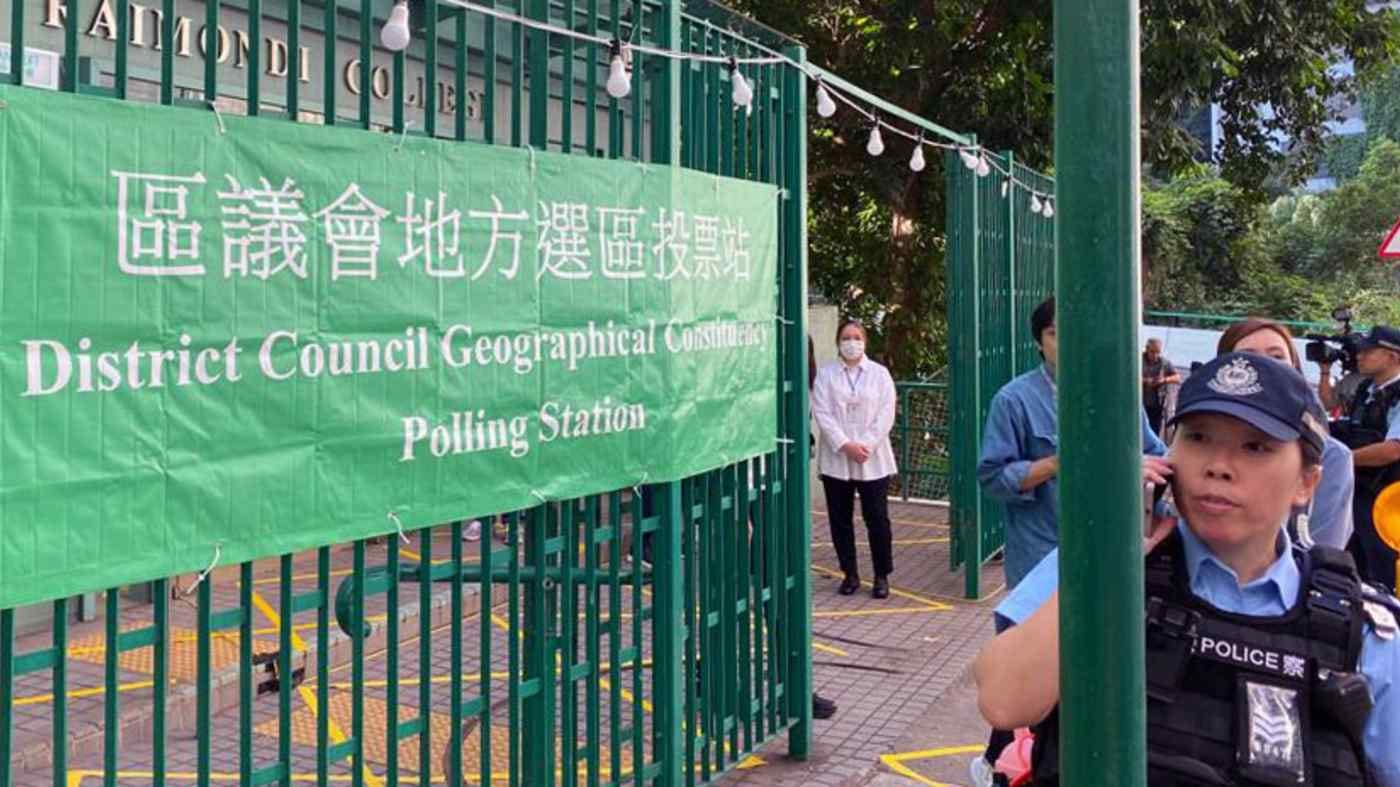Four years ago, on November 24, 2019, Hong Kong voters turned out for an election of members of District Councils, democratically elected bodies although with limited and entirely local powers. The election came in the wake of months of increasingly violent demonstrations that had disrupted city life. The government assumed that the public at large blamed the protestors and would return suitably pro-government, pro-Beijing candidates.
In the event, 71 percent of registered voters participated, about double the percentage in the previous such election and pro-democracy candidates won the vast majority of seats. The pro-democracy forces, aligned with the localist camp, won an absolute majority in both votes and electoral seats in all of the 18 District Councils and tripled their seats from 124 to 388, humiliating the government.
This triumph for the democratic camp proved a tragedy for the movement. Beijing was so alarmed by that and the protests that on the following July 1 overnight, it imposed on Hong Kong a National Security Law threatening long prison terms for persons found guilty of “subversion” and “collusion with foreign forces.” A few months later the government postponed legislative elections due that year and went on to disbar several existing legislators, whereupon other pro-democracy representatives resigned. A few weeks after that there were mass arrests under the NSL and 47 democracy activists, including resigned legislators and sitting district council members, were charged with subversion over a primary election they had held to choose candidates. Nearly three years later the case against them has yet to concluded. Most were denied bail and have now been in prison for 33 months and it is uncertain when sentences will be handed down.
It was against this background that the government the government decided to try again on Sunday, December 10. But in a bid to avoid the embarrassment they suffered in 2019, they changed the electoral system for both the legislature and district councils. The latter were enlarged but the percentage of those popularly elected was reduced to just 20, the majority being official or appointed by the chief executive government-appointed committees.
But to avoid the possibility that genuine voices of dissent might emerge, the candidates for the elected seats had to be screened by a committee, of which some were themselves members, to ensure that only ‘patriots” could take part. Pro-democracy candidates were not admitted. The result was a costly exercise in campaigning by a variegated bunch of little-known persons without any significant agendas to improve their districts.
The pretense that this election mattered was driven by a massive official campaign urging people to vote. Civil servants in particular were urged to get out to vote, making many fear that their careers might suffer if they didn’t. Although the ballot itself was secret, there would be a record of those who turned up to vote – and hence also of those who did not.
Such was the official need to dragoon people to the polling stations that the Independent Commission against Corruption was dragged into issuing arrest warrants for some individuals said to be encouraging others not to vote. What this had to do with corruption was not clear but it showed the desperation of the government. Voting hours were extended to midnight. Some 10,000 police were on hand to make sure there would be no disruptions, despite the fact that most of the people who might cause disruptions – 10,000 of them – had already been arrested, with 3,000 prosecuted. News reports said three members of the League of Social Democrats, one of the last surviving pro-democracy groups, were followed and arrested just before they planned to protest against what they described as a “birdcage election” and a “big leap backwards” for electoral and democratic rights.
More than 113,000 residents quit the city in the first year after the passage of the National Security Law alone, a 1.6 percent population decline and Hong Kong's biggest population drop since record keeping began, and so were unavailable to vote. The campaign to preserve public order, according to news reports, must have been effective. Just six people were arrested for alleged offences, including posting online for people to cast invalid ballots.
Despite the “encouragement,” in fact once again the people at large needed no encouragement not to vote. Despite the appeals and threats, despite the ability of the leading pro-Beijing party, the DAB, to organize its local cohorts, just 27 percent of voters turned out, the lowest on record. That surely showed Beijing that though order had been restored in Hong Kong, local sentiments may not have changed much since 2019. As for this version of “democracy”, Beijing might do better not to bother.


One must wonder if these efforts actually win any credibility for the exercise of mainland-style elections, or simply call greater attention to the measures Beijing has taken.